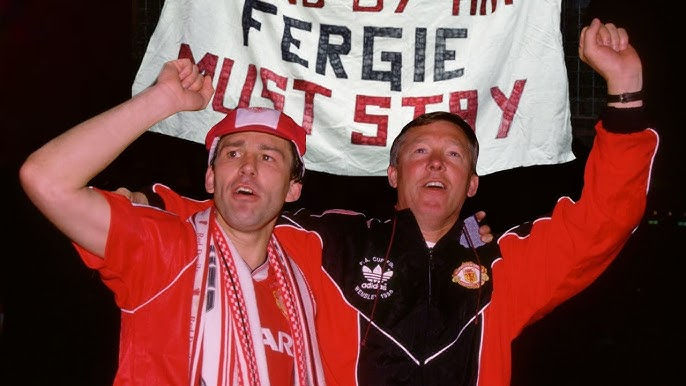Manchester United: A Sleeping Giant or A Deathbed Patient?
- Steve Basing
- May 5
- 3 min read
Updated: May 8
REUTERS/Jaimi Joy
Manchester United could still end the season with a major European trophy. If they are victorious in the Europa League Final, the Red Devils will have won a medal in the last three seasons, following last season’s FA Cup victory and their 2023 League Cup victory. This would represent a golden age for most teams, and the trophies would mask many league-based sins. But, like it or not, Manchester United is unlike most clubs.
They are English footballing royalty, a global powerhouse both on and off the pitch. And in the long shadow of Sir Alex Ferguson’s era of dominance, cup success no longer feels like enough. The uncomfortable truth is this: Manchester United is a club in crisis.
Sunday’s defeat to Brentford was their 16th league loss of the season, half of them at Old Trafford. Manager Rúben Amorim's arrival in November has done little to reverse the decline. And whilst it is too soon to judge him or new co-owner Sir Jim Ratcliffe, the lack of tangible progress suggests deep-rooted structural issues that quick fixes alone cannot resolve.
The root set in even before legendary manager Alex Ferguson's tenure ended. Though he was able to guide an aging and threadbare squad to the title in his final season, he had seen the writing on the wall. And one can assume that Ferguson’s decision to depart United in 2013, after 27 years at the helm, was at least partially motivated by his realisation that he would need to rebuild his squad.
Although Ferguson was a master of rebuilding squads, he successfully did it several times at United. However, the emergence of United’s rivals, City and Chelsea, as financial superpowers made the proposition far more daunting than it had previously been.
Since Ferguson's departure, United’s issue hasn’t been a lack of investment, but rather how that investment has been deployed. The club’s transfer policy has often seemed more reactive than strategic, focusing more on marquee names than long-term vision. A recruitment policy was more engaged in attracting the last great superstar than the next one.
The £89 million re-signing of Paul Pogba after losing him on a free, only to let him walk away again six years later for nothing, exemplifies this dysfunction. The club that once prided itself on nurturing talent instead became reliant on ageing stars like Casemiro and Raphaël Varane—great players but well past their prime when they walked through Old Trafford's doors.
Former manager José Mourinho once called finishing second in the 2017–18 Premier League, behind Manchester City, one of the best achievements of his career. At the time, the claim raised eyebrows, especially given United and Mourinho’s past success. But in hindsight, perhaps the Portuguese were onto something.
United have been, it seems, in a perpetual cycle of transition and crisis ever since, and for Mourinho’s compatriot Amorin. This campaign ended as runners-up would be nothing short of a miracle. Should United win the Europa League and qualify for next season's Champions League, it will be a significant boost in their efforts to rebuild. But it must not obscure the dire state of the club.
A poorly balanced squad, managerial instability, and looming infrastructure costs—from a potential new stadium— leave United in a weaker position than all their traditional top six rivals, as well as clubs like Aston Villa and Newcastle, who continue to seek a consistent place at the top table of English football.
Even Tottenham Hotspur, this season’s other prominent underachievers, and United's potential Europa League final opponents, may be better positioned. They boast a young, exciting squad and have already navigated the costly construction of a new stadium—an investment finally beginning to pay dividends.
Manchester United remain one of the biggest names in world football, and eventually, they will rise again. Just as Liverpool endured a 30-year wait for a league title before winning two in five years, United's resurgence is inevitable. To paraphrase Mark Twain, ‘The reports of United’s death have been greatly exaggerated.’
But let us be clear: this giant is not merely sleeping but in a deep coma. And waking it will take more than hope. It will require vision, competence, and above all, patience.




![[Original size] DJ's Sports Show.png](https://static.wixstatic.com/media/75856f_7f4ffe7f83c14d209a701ef21c02c17d~mv2.png/v1/fill/w_120,h_120,al_c,q_85,usm_0.66_1.00_0.01,enc_avif,quality_auto/%5BOriginal%20size%5D%20DJ's%20Sports%20Show.png)





留言